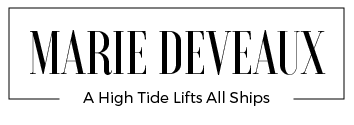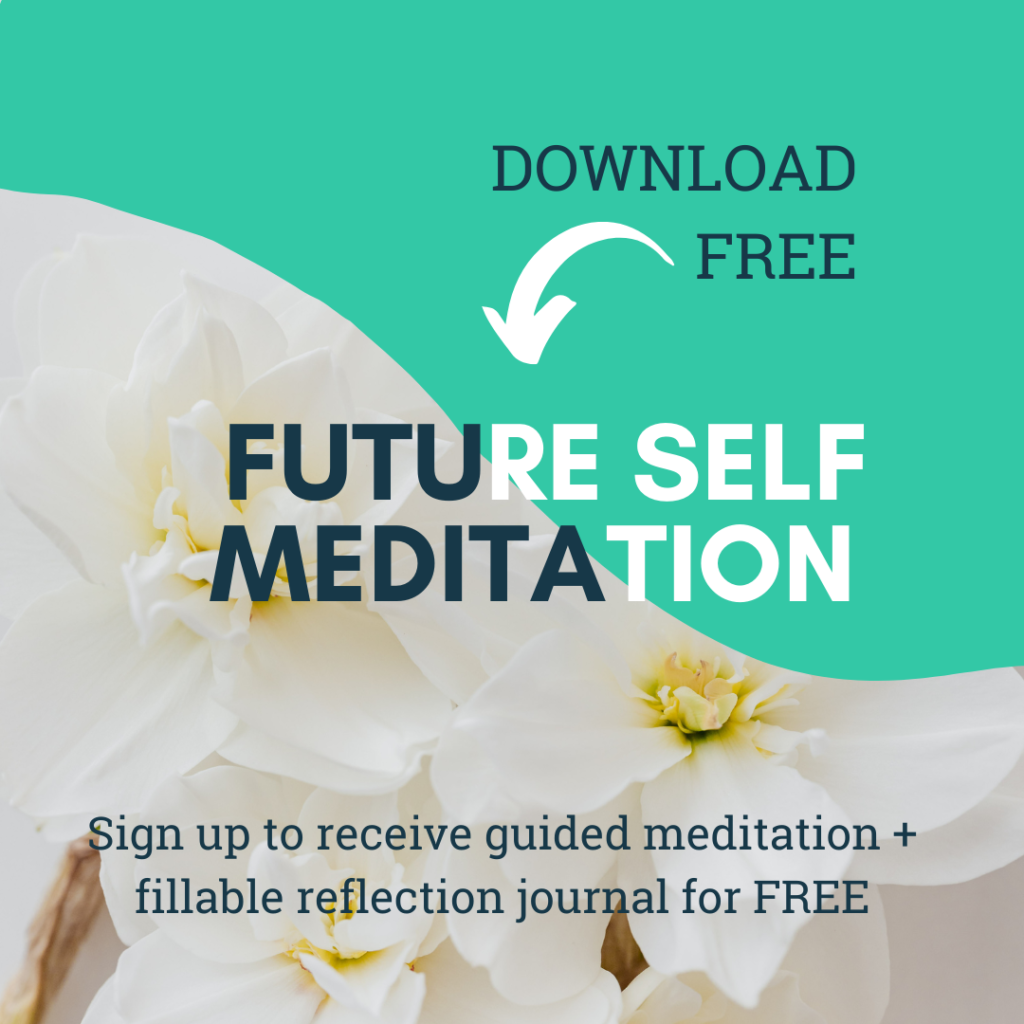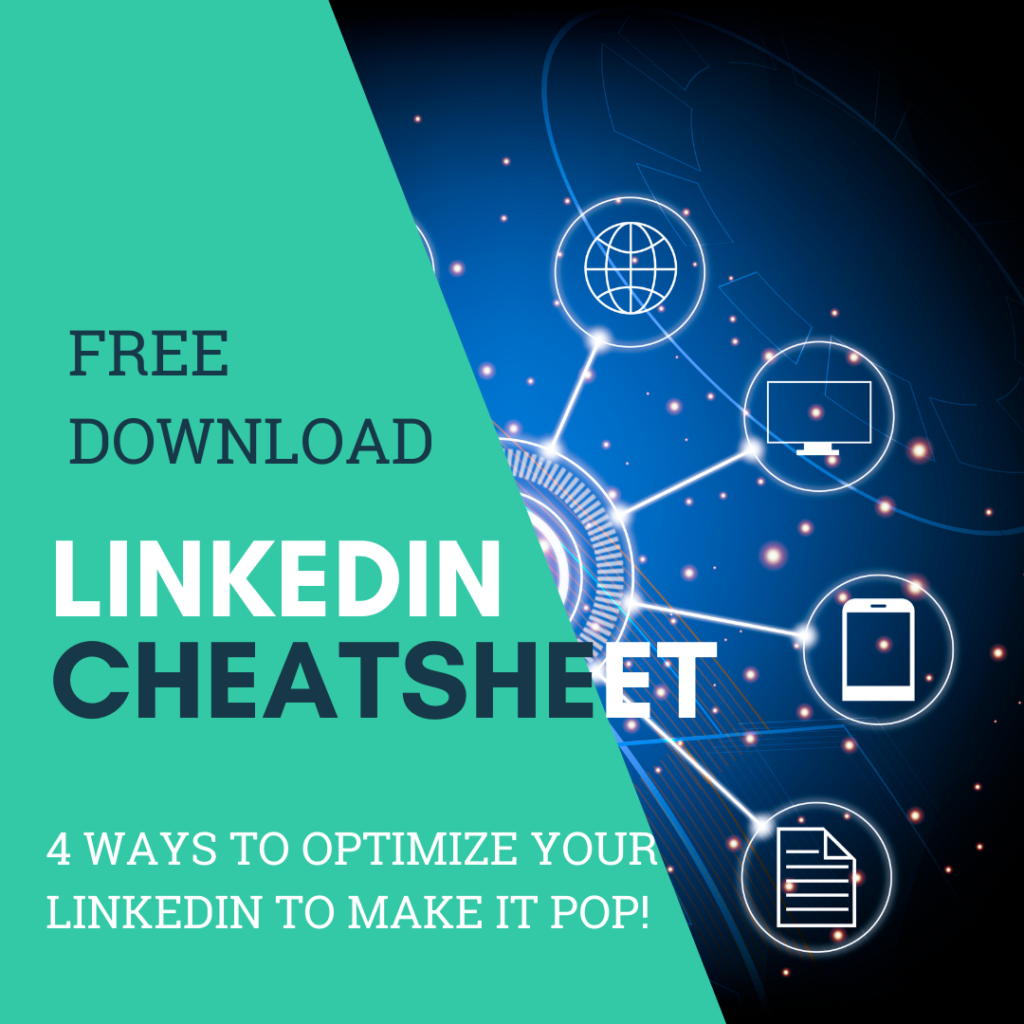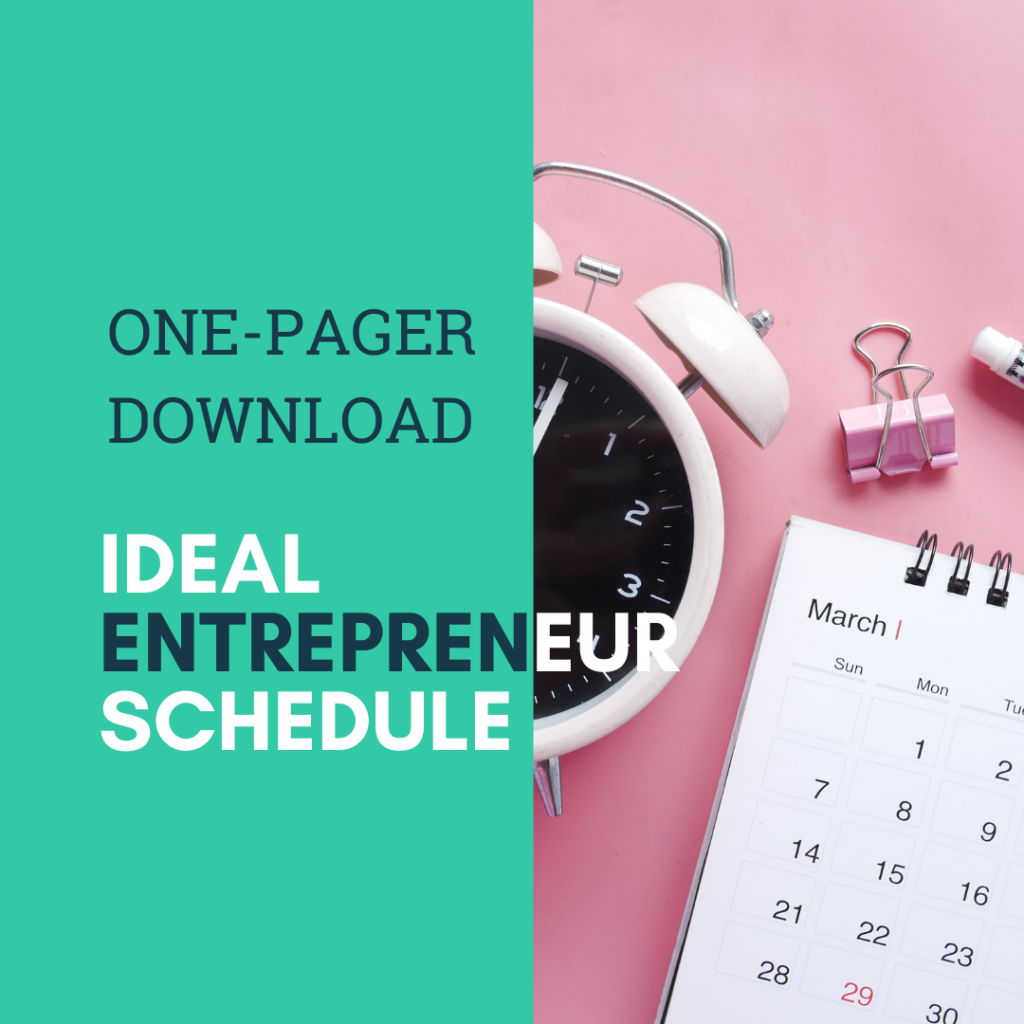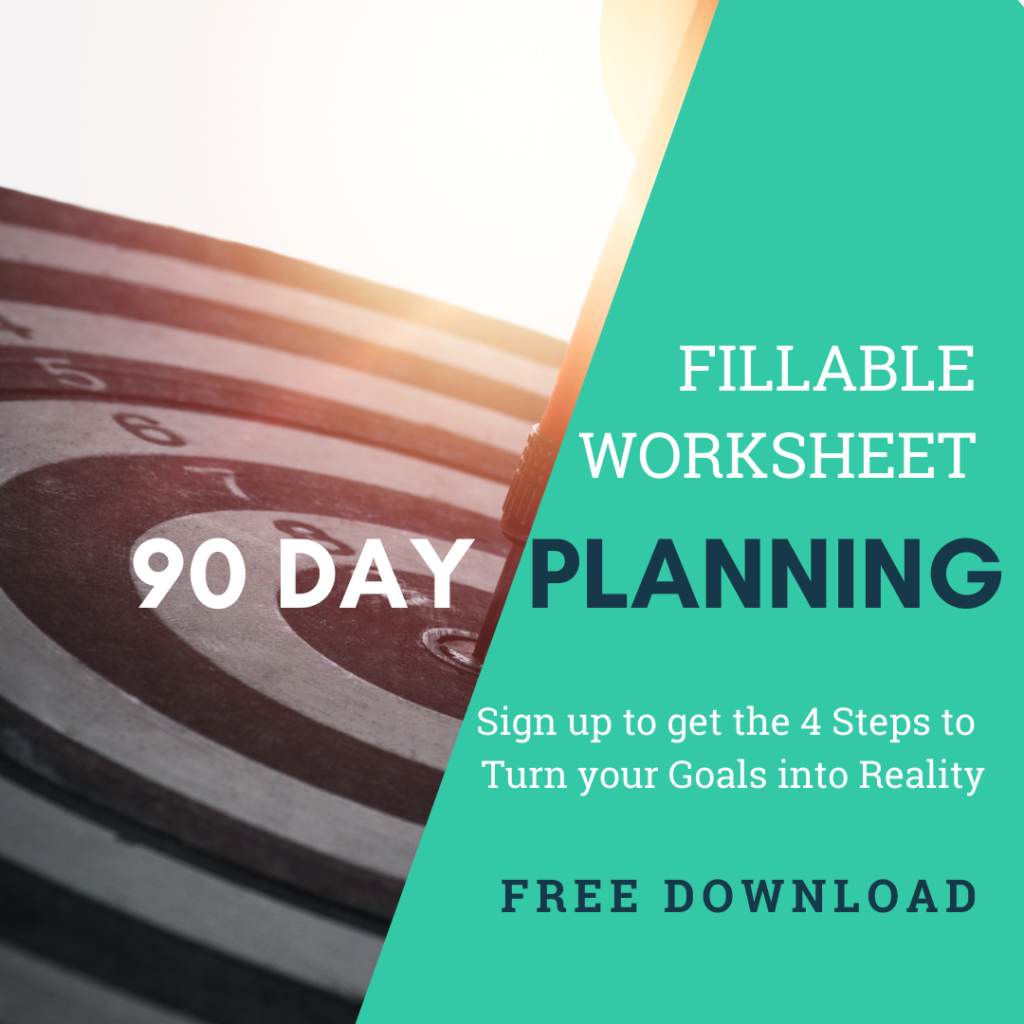Watch the interview on the She Runs It Community
OR Read the transcript below…
Marie: All right. We’re live on the Facebook. Yay. Hey family. It’s Marie. This is Candace. I’m so excited you’re here today – you don’t even understand! It’s Wednesday. It’s time for a Live at lunch. And today I’m so excited to be speaking to the amazing Candace Taylor, like energy always on 11. I’m so excited she’s here. But Candace – just introduce yourself to the people and tell them a little bit about like how we met. I would love to get into our origin.
Candace: Yes. This is one of my favorite stories, because it’s like one of those survival stories that you don’t realize you have until you look back. I’m Candace Taylor. I’m originally from Boston, Massachusetts. I’m a New Englander at heart. And I currently live in New York, so that’s always this weird juxtaposition, but I’ve been here for five years and I’m halfway to becoming a New Yorker apparently. I’ve have been dancing my whole life, so I use dances and movement as my foundation. But I’ve also found that, you know, I’m multifaceted. So I am in the world of operations. I’m in the world of research. I got a Fulbright and did that for a year and lived in Nicaragua. I love to travel. So all of my life has been like this fitting all the puzzle pieces together. And it’s made for a beautiful life experience, I’ve got to say.
I met Marie on that puzzle piece at Success Academy, which was my first experience where I clearly understood what a toxic work environment was. But also, Marie is one of the people that helped me gain this insight – I also learned that you can be strategic within a toxic setting and still use that space to build yourself, and learn your limits. Both Marie and I had that experience where we learned our limits. We put up with what we needed to put up with to accomplish our goals and to develop in the ways that we wanted to. And we were cheap about what we wanted to happen in the experience. And the second we met our limits, we were like, okay, I found it. Goodbye.
Marie: Yeah, goodbye. Oh my gosh, so true. But yeah, finding your limits – I love that. As soon as you started talking about Success Academy, I get a little tightness. Because that’s what they call a traumatic response. But, so true, it’s valuable in that you do learn your boundaries, you learn your limits, you learn what you can and cannot tolerate. So there’s that. I call that job – the job that love forgot for a reason. But even in those challenging times, you do, you learn so much. But I remember, I think the first time I really met you was when you had first started there. And I remember because you were reporting to a very difficult woman and I remember seeing you being chastised in a hallway. And I was like, I don’t know what this girl is doing here. And then I found out you had a Fulbright and I’m like, “What is she doing here? This just makes no sense.” Talk to me a little bit about your Fulbright. Because I always forget that you spent all this time in Nicaragua and we could legit be doing this interview in Espanol. But tell us about Nicaragua and what you were doing there.
Candace: This is another one of my good stories too, because it’s another moment where I had to overcome what people externally perceived about me and what I honor, and what I believe about myself. So my undergraduate experience – I went to a small liberal arts college – I went to Connecticut College and really enrolled there because I was like, I’m not quite sure what I want to study for my major, but they have a great dance program. So I’ll figure it out along the way. Once I got there, I realized the dance program was the best part about that experience. And the other departments were, you know, honestly less rigorous and just weren’t a good fit for me. So I was like, “Okay, I’m gonna focus on dance. I discovered anthropology when I did my study abroad in Nicaragua. So my junior year, I went to live in Nicaragua for three months, fell in love with like literally everything. I was like, “Okay, I think I want to come back here at some point, how can I make that happen?” I did my first extensive independent research project through that program that I did, studying modern dance and the modern dance movements and instruction of kind of explosion of modern dance that happened in Nicaragua, which is a really beautiful story, and put that in my back pocket. I was like, “Okay, anthropology and dance I think, for me.”
So I got back my senior year and was researching different opportunities that I could look toward and Fulbright was one of them. And I was like, “I like that idea. I think I’m going to do it.” And I began to fill out this proposal. I go through the application process for the Fulbright. You have to get the backing of your college. They basically say, “Okay, yes, your proposal is good. You can apply.” And then that’s basically the process. Then you get stamps along the way. So I submitted my proposal to the committee at our school and they were like, “We don’t think you’re ready. This idea isn’t developed enough. You should probably wait and apply next year. You’re not ready right now.” And it was this moment that the first thing that happened, I was like, “Okay, well, I guess they’re right. And then I thought, but you haven’t given me any critical feedback on how to improve this proposal.” So I know that you don’t have my best interests at heart. And that was like the first red flag.
I was like, “Oh, if someone’s not actually giving you ways pathways to improve when they shut you down, they’re not thinking about how you can grow and be, and reach your potential. So fundamentally we’re off here. So I’m like, “Okay, I’m just going to ignore you. I’m going to apply anyway.” And I actually sought out some more feedback. I went back to them and said, “Hey, can you give me more feedback? I’m not going to take your recommendation. I am going to apply this year. I put together this proposal in a week, because I decided very last minute and I know there’s room for growth. So tell me where to grow. Got some feedback. Ultimately it became my honors thesis. So I had some more time to chew on it. And then applied. And I got it.
Yeah.
Yeah. I got it.
Marie: See, that right there is so powerful, because you said you had to get their stamp of approval. They told you no. And you’re like, yeah, I’m gonna do it anyway. And I need you to tell me how to grow. Because that’s so true. Sometimes people are so quick to be critical without actually giving us what they see in terms of improvement, what would need to change. And that’s where all the growth is. I love that you were like, “Yeah, no, still doing it.” I love that. So then, tell us how your career has progressed because you started with this interest in dance and anthropology. We know you worked in some operations stuff. Where are you now? And how did you get there?
Candace: Where am I now? I launched my own business. I have my Instagram money… (and my phone just fell because I got so excited.) I launched my own business, which was really exciting. So after I left Success Academy, I left for another opportunity within the Education space. Because I was like, “Oh, I’m a very purposeful person. I want to have an impact on people’s lives.” And Education felt like a really clear way to do that. So I was like, “Okay, cool, I’ve found something, let me continue along.” And that in that regard. So I moved on to another organization, another place where they didn’t have my best interest at heart. I received no training. There was no training plan. My manager for one reason or another, which I still am not clear on, just didn’t want to develop me, or didn’t have the bandwidth. I shouldn’t say didn’t want to – didn’t have the bandwidth. And so it didn’t work out eventually, and I got let go. And when I did, I stopped and said, “Okay, Candace don’t chase the opportunity that you think is the right one, look for one that really feels like it aligns with who you are and what you want to do. And go back to dance.
I moved to New York and learned how to dance at all. And part of the reason for moving here was so that I could pursue professional dancing. And ultimately I decided that’s not the pathway I want to go on, but I didn’t even give myself the chance to honor that, because there was no pause. Clearly the world – the universe is shaking – God is like, “bam, bam, slow down, stop chasing all these opportunities” because we think they’re the right thing to do. So I went back inside and I think it was like a few weeks after I had gotten laid off, the Side Hustle Intensive – you started marketing that. And I was like, okay, enrolled in that. And then I also got the opportunity to audition to become a 305 Fitness instructor within weeks. And so I did that and this beautiful synergy of learning, how to grow my own voice, learning how to organize my own business and my own efforts, learning how to shine and like being in love with myself through the Side Hustle Intensive and through the 305 training, all happened at the same time. And I was like, “I see what’s going on here.” And so now here I am still working for 305 Fitness full time. I managed our training program, so helping people to find their inner leaders. And I also run my own business called Connecting and Creation, which is really designed to let people encounter their purpose, encounter their potential, and get there through some tough love and some hugs and all this stuff in between.
Marie: I love it. Because I remember when you joined the Intensive and you’re really in this transitional phase, trying to figure out what’s next. Clearly you have this love of dance. You clearly had also built all these other skillsets and just trying to figure out where to funnel them. And I remember that year, because I think that was – maybe it was what – 2018? I think when you did the program, but it was like, you were just blowing up, all of a sudden you were like, “Oh I’m choreographing this whole thing, a series or a festival Upstate, I’m doing this and that…” and it seemed like you just couldn’t get enough, in that moment.
Candace: Yeah. And it’s similar to now. I think one of the things that the Side Hustle Intensive did for me was that it let me understand that having a lot of opportunity, and having a lot of possibility, wasn’t a bad thing. Before, I kept being like, “Oh, it doesn’t fit into business as usual.” And you were like, “No, you decide what your business looks like. You get to communicate what your business offerings are, how they line up into a structure – you decide that.” And that was really liberating for me. Because up until that point, I was like, “Well, I can’t start a business because it doesn’t line up to anything that I’ve seen.” And you were like, “No, that’s the point! Bring something that nobody else has. That’s the whole point.”
Marie: I call this class the Side Hustle Intensive. And then our little sub-header is “Build a business that loves you back.” Because so many times we find ourselves in work that is not nourishing, that doesn’t feed our soul, we’re in these toxic environments. And then we go to start a business and we don’t slow down enough to let that vibration cool down to where we actively choose something different. So we go out and we’re recreating the very thing we’re trying to get away from. Right? So, stop the noise, do something different on purpose.
Candace: Totally.
Marie: Tell me now about your kind of progression as a coach. Because I always tell people, coaching is a toolkit. And every time I meet a coach, they’ll ask, Oh, when did you become a coach? When did you become a coach? And I’m like, that’s the wrong question. Because coaching is a way of seeing people. So you’re always doing it, but eventually you claim it. So what was that moment for you? When did you find yourself into coaching?
Candace: What was the moment I claimed it? I think once I realized that people started telling me I was their coach, I was like, “Oh, so I’m clearly operating in a certain way.” And I realized I needed to organize and codify some of the work that I had been doing. So I don’t quite know when it happened. But I do know that it was the people that I was supporting reflecting back to me, “You’re impacting my life in a way that I’ve not experienced yet,” which I think is nice… In many ways you do have to set your sights on the thing that you want and then chase it. But I think we give too much focus on that kind of pathway of developing your life, rather than just the everyday experience and people validating what they have going on with you or what they’re experiencing from you, also can help you carve your pathway. So a lot of it was like my clients just saying, “I’m your client, you’re helping me in this way. You’re a coach.” And then that allowed me to go into other settings as at 305. I started as an instructor, which is some form of a coach. That’s my style of instructing – it’s like coaching and motivational coaching. But then I created this role for myself at the organization as an instructor success coach, because I realized, “Oh, this is who I want to be in every setting in every sphere. So let me create that in there’s opportunity that I have.”
Marie: Oh, I love it. And I hope all of y’all who are listening – I hope you heard what she just said. So she started in one place and then created a role around her skillset. Do your own thing. I love it. I love it. So obviously those who don’t know, Candace is coming onboard the High Tides team. She’s my first Assistant Coach hire. I’m so excited. So she’s going to be one of the people supporting clients through the Side Hustle process this fall. And I know, you know it and love the process so much and just so excited to have you. But I do want to hear more about your business too, because you have started Connecting Creations. Tell us about that. What is the mission and vision behind your practice?
Candace: So the ultimate, the very simplistic vision of Connecting Creations is to help people see their potential – dream really big and then achieve their dreams and the visions that they set for themselves. And the primary methods of doing that are through a small boutique. So connecting them to the products, connecting them to resources that will allow them to climb toward their dreams through coaching. So I’ve kind of coined the term “manifestation coaching.” So really thinking about that seed that you want to grow into the tree and having a coaching model that helps you drive toward that thing. I also integrate movement coaching into that. So sometimes a healthy relationship to yourself is the seed, and utilizing movement within that. And then the last thing, are Experiences – so hoping to launch these next year because COVID is putting a little damper on many things. I want to do workshops and experiential learning abroad in spaces that might be away from where you’re in the craze of our day to day, retreat like experiences that allow us to tap into who we are, and build toward what we desire to be.
Marie: Oh, I love it. I love it. So you have the boutique services, you’re incorporating movement and then creating these experiences for people to manifest in so many ways. I love that. Oh, even the analogy of this – I love it. I love it. Okay, cool. So, talk to me a little bit about mentorship for you. Because I feel like that’s a topic that we talk about a lot actually. Where is that showing up for you and how do you see that as a support that you leverage?
Candace: I always tell people – my best friend, Emily – she’s literally heard this for the past decade – but I always tell people “Your Rolodex is your most important resource. You have to have a catalog of individuals you know who support you. And you also want to create the rolodex so that it matches with what your needs are. And so in every setting I go into, I’m always looking for a mentor, like, what do I need to learn? What do I need to learn about myself, about a process, how to go about things. And I’m scanning a thing /situation to see if that person’s going to be a mentor. And I remember doing that with you honestly, I remember thinking, this is a powerful black woman who is just glowing in a space that is not designed to have her glow and not designed to have her shine. And I didn’t necessarily formalize a contract with you that you’re going to be my mentor, now let’s sit down for two hours every day, but I was very intentional about staying connected with you, whether we were working together or not. I’m just looking to you for when I’m evaluating decisions that I need to make. “Okay, how would Marie make that? I’m gonna reach out to Marie and ask her how she would make it, and really treating this catalog of individuals to support me and making sure that every chapter of my life, every experience, every setting that I’m in, I am highlighting who those individuals are.
And so mentorship for me – some people will organically come up as mentors based on the roles in the relationships that naturally created. My current manager at work is an amazing mentor. She just has a way of working that I need to absorb some from because she’s like slow and steady wins the race and I’m like, let’s do it all now. So I’m naturally collecting mentors in that regard, but I also believe – I guess my principle around mentorship – is to seek out the mentor that you need and to always be in a space of evaluating what are the things that I need to learn right now? And who in my orbit can help me get there?
Marie: Yeah. Oh, I love it. I’m just hearing this theme with you around this kind of never ending growth, always seeking out the feedback. Like how can I level up? Who can support me in the level up? What’s that going to look like? And so much of it becomes this like organic process, right? Love it. Love it. Okay. We’re getting close to the end of our time. So of course I gotta hit you with a rapid fire.
Candace: Okay.
Marie: So this one, and you’re going to know from the nature of these questions, I’ve been thinking about you recently. So Candace – East coast or West coast?
Candace: My heart of hearts is West coast. My foundation is East coast.
Marie: I had to throw that in here y’all because she keeps telling me she’s moving to San Diego and I’m not, I’m not with it. You need to just take us all with her because it’s not fair. Okay. Next question. Who’s your favorite choreographer?
Candace: Who’s my favorite choreographer. Ooh. I would say Camille Brown. She’s been really inspirational. And in my research, she does a lot of storytelling through movement and storytelling for the masses. So how can I get people from all walks of life to connect and tie to this story in a meaningful way,
Marie: Oooh. See that makes me just want to watch YouTube all day. Okay. Favorite social media platform.
Candace: I really like Instagram. I hate the company, but I like the concept of being able to share a status – “this is what I’m focusing most on in this moment,” posts, sharing my little daily musings and the story. I love all the features that they have and the polls and I mean, it’s fun. It’s really interactive and multifaceted in a way that serves my brain. I want to say TikTok, but it’s too much. It’s too much.
Marie: I was gonna ask you your thoughts on the TikTok
Candace: It’s so hard, so hard.
Marie: Okay. So you heard it here first. Don’t bother with TikTok.
Candace: Well I’ll say it’s a great way for letting yourself explore and play. I love TikTok in that regard. Because it’s like, you can’t think – like the kids they’re successful – because they’re just like, “I can do this for 15 hours and explore it,” the same thing in like 1700 dances. So it’s like reprogramming my mind to not feel like it has to be a polished experience. The kids were just like, let’s play. Let’s just play.
Marie: I love that. Okay. Let’s see. When you’re not dancing, what are you doing?
Candace: Hmm, when am I not dancing? I don’t know. I’m like talking to you. I really have been into Tarot reading lately. I’m really cerebral. And my thoughts are always – I’m just thinking so hard all the time. And Tarot has been a nice way for me to have my thoughts reflected back to me. My intuition is reflected back to me.
Marie: So it sounds like a conversation for tomorrow
Candace: Oh, it totally is.
Marie: Yeah. Okay. We’ll talk more about that offline. Do you have a nickname? What do people call you?
Candace: ‘Candy shop’ is one of them. ‘Candy cane’ – my uncle calls me Candy apple, Candy T is another one. There’s just like some form of – any form of candy. Like my most embarrassing nickname that is from high school is Can Drizzle – it’s just very high school. That’s the only story I can say. It’s like, you thought this was very cool and it wasn’t. relies on it. It’s immortalized on a sweatshirt. Oh, I got it embroidered on a shirt.
Marie: Okay. That’s a lot. That’s a lot. Would you rather ask permission or for forgiveness?
Candace: Forgiveness, forgiveness, forgiveness.
Marie: Okay. Who’s the last person you said I love you to?
Candace: I literally say I love you at the end of every call. So, my last coaching client.
Marie: Beautiful. I love it. And what’s your proudest moment today?
Candace: Ooh, you know, this is a daily ritual of mine. I remind myself that I’m proud of me. And so I think it was last night getting to the end of the day and being like, “Wow, you did it again. You survived, you thrived and you just were authentically yourself. I’m proud of you.”
Marie: That’s like the best answer. So good. All right, one more. And then I have one final question for you, but so this one, let’s say there’s a magic button and if you push this button, everyone on the planet will be 7% happier. But also if you push this button, all hair products will be banned forever. Do you push the button?
Candace: Lord have mercy, all hair products will be banned forever!? Well, okay. So here’s one thing – I don’t believe we need to be happier. So I’m not pushing that button just on that alone. It’s like we particularly in the US society, we train ourselves – be happier… be happy… and be happy… if only I was happier – you don’t need to be happier. Joy is an option. Joy is in existence. I don’t know – maybe this is my Christian upbringing. But I do think we get so attached to the fleeting nature of happiness in a way that cripples us. You can be in a really dark place and be strong. And some of my most trying times have been the moments that taught me how strong I was. So I’m not so latched to happiness. Also, there are some good hair products out there. So you ain’t gonna try to steal my curlers.
Marie: Not today. And all this month on the She Runs It, we’ve been talking about freedom. When you think of freedom, what does freedom mean for you?
Candace: I wrote this Ode to Dance poem. You can find it on my Instagram, but it really talks about freedom being the ability to fully be embodied. And I use that in movement because I think even the blink of an eye is freedom. Being so connected to the fact that you have the capacity to blink and breathe, expand your chest. That, to me, is freedom. Knowing your full capacity and operating in a way that really honors us – that is freedom to me.
Marie: Beautiful. So good to have you here. Thank you so much for sharing all of your nuggets of wisdom – jewels, gems dripping off of you. Of course, you can always get more of Candace in the Side Hustle Intensive this fall, but tell folks where they can find you in the meantime so they can get their Can Drizzle fix.
Candace: I have a website connectingcreations.com. Please reach out. I’m actually day by day, week by week, adding more to my website. So I’m going to be integrating a whole coaching platform to make it really easy to book from my website, which is exciting. I am also on Instagram at candeeshoppee – you can find it – I’m sure it’s like in the comments somewhere. Those are the primary locations – hit me up. Reach out.
Marie: Awesome. Thanks so much everyone for today. This is our Live at Lunch. If you have comments or questions for Candace, make sure you drop them down in the comments. We’ll be sure to circle back, show her some love and please shout out and give some love toward Candace’s way. Thank you so much for being here, Candace.
Candace: Thank you Marie. You’re like one of my favorite people to talk to. So any extra moments that I get to chat with you, I’m like, “yes, it’s all happening!”
